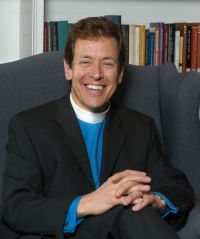Earlier this month, I wrote “A Shift in Theological Education” to highlight the shift in seminary education from primarily an on campus face-to-face learning experience to one that includes hybrid (using both face-to-face and online components) or online courses. This shift mirrors what has happened in higher education more generally where online enrollment grew 20% over the most recently available seven year period from 9% to 29%.
Interestingly, The Reverend Dr. Frederick W. Schmidt, Jr. reaches differing conclusions in his recent article on the topic. Schmidt is an Episcopal priest who serves as Director of Spiritual Formation and Associate Professor of Christian Spirituality at Southern Methodist University, Perkins School of Theology in Dallas, Texas. In that article, he begins with an assessment of the scope of problem with the current seminary experience:
Our seminaries are dying and the Master of Divinity degree has been discredited.
Bishops and other church leaders once believed both were essential to effective ministry, but today they are considered one of several routes to ordination and an increasing number of church leaders are arguing that attending seminary may actually be detrimental to the process they once considered the gold standard.
A large number of the mainline seminaries are selling their buildings and property, cutting faculty, and eliminating degree programs. Those that are not, are competing for a shrinking pool of prospective students and rely on scholarships and lower academic standards to attract the students that they do have.
Schmidt concludes his article by sharing his proposal for reshaping theological education based on three assumptions:
- One, rigorous academic preparation is absolutely essential to creative, competent, servants of Christ who are deeply formed and capable of forming others.
- Two, that kind of preparation is more important than ever before. We live in a complex and fast-changing world that will require a generation of leaders who are as well trained and educated as are the people in any other profession. It is a crime and miscarriage to require anything less . . .
- Three, I am also convinced that as many new creative approaches to education as there might be, a residential model of focused, face-to-face education and formation in the faith is the best means of preparing a generation of thoughtful, faithful servants of the Gospel. This is not to denigrate those who have been encouraged by the church to pursue alternative means of completing the requirements for ordination. It is to say that the church should instead make resources available for all those who do pursue the church’s ministry to avail themselves of that face-to-face formation.
To move such a possibility toward reality, he suggests lists of things that “candidates for ordination would be required to do,” that the church would provide in exchange for such work, and that “seminaries would promise to provide.”
So What?
Over the last decade increasing numbers of people within the mainline church in America have begun to speak openly that after decades of declining membership the group of denominations is now dying or can be understood as being deathly ill. No small change will reverse the situation. Many are laboring within denominational structures to redefine what it means to be a denomination in a postmodern world. Others are working beyond the structure of denominations. All are seeking a new way forward.
Mainline denominations rely upon seminary trained men and women to serve as pastors in local congregations. To be ordained in these traditions, candidates must complete both academic preparation (typically a Master of Divinity degree) and the denomination’s process (typically involving multiple additional components completed over multiple years). As denominations open the door to ordained ministry wider and wider as a part of their response to reshaping denominational identity, the place and value of seminary preparation is and will increasingly be questioned. Many are seeking to reshape the role of seminary training to ensure it is helpful to those called to serve in ordained positions. Some are concerned primarily with delivery (residential experience with face-to-face courses versus distance experience with online courses versus offering both options). All are seeking a new way forward.
If you were reshaping the seminary experience for Master of Divinity students seeking ordination in a mainline tradition, how would you begin?